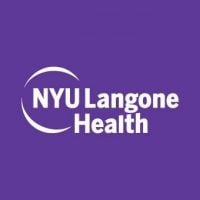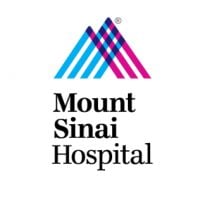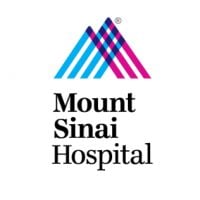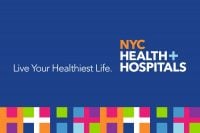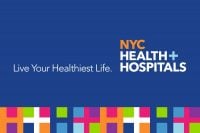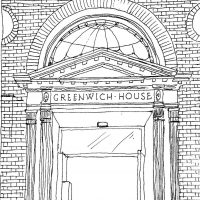NYC Health + Hospitals - Bellevue Opiate Treatment Program
Drug Rehab Center in New York, New York
The Bellevue Opiate Treatment Program is a drug rehab in New York, New York which provides assistance to those with opioid addiction, substance abuse, and drug addiction. It offers various levels of care, including aftercare support, drug rehab, and outpatient, and is accredited by SAMHSA and accepts private health insurance.
About This New York, NY Facility
NYC Health + Hospitals - Bellevue Opiate Treatment Program is a comprehensive post-acute care facility located in New York, New York, providing specialized treatment for opiate and opioid addiction. The program offers a range of services designed to help individuals and families affected by addiction recover and lead healthier, more productive lives. In addition to medical and psychological treatment, other services offered include counseling, life skills and substance abuse education, support groups, and dietary and exercise counseling.
At NYC Health + Hospitals - Bellevue Opiate Treatment Program, they strive to provide a comprehensive approach to addiction treatment, with a focus on developing personalized treatment plans to meet the unique needs of each individual. The program also focuses on improving the overall quality of life by providing care and support to each patient throughout the entire recovery process. They offer evidence-based therapies, such as cognitive-behavioral therapy and dialectical behavior therapy, as well as group and individual sessions. Additionally, they have an in-house healthcare team that provides medical services, such as medication-assisted treatment, in order to help patients manage withdrawal symptoms.
NYC Health + Hospitals - Bellevue Opiate Treatment Program is accredited by the Joint Commission (TJC), the leading accreditation organization for hospitals and healthcare organizations. In addition, they are also licensed by the New York State Office of Alcoholism and Substance Abuse Services (OASAS), and have received numerous awards and recognitions from organizations such as the National Council for Behavioral Health and the National Alliance on Mental Illness. These accreditations and recognitions demonstrate the program’s commitment to providing high quality and comprehensive treatment for opiate addiction.
Genders
Ages
Modality
Additional
Accreditations
State License
SAMHSA

JCAHO
Conditions and Issues Treated
Substance abuse refers to the intensive and inappropriate use of psychoactive substances. Psychoactive substances are those that affect brain function. These include illegal drugs, alcohol, and even the excessive use of prescription drugs. The overuse of psychoactive substances leads to severe physical or psychological dependence. It also affects the social life and relationships of the affected individual. Substance abuse is treatable.
The duration of treatment at NYC Health + Hospitals - Bellevue Opiate Treatment Program in New York can require weeks or even months depending on the severity of the condition as there is a risk of relapse. Treatment options include medications, counseling sessions, various types of behavioral therapy, and group therapy in different combinations.
Addiction to prescription opioid painkillers like oxycodone and hydrocodone, and illicit opioids such as heroin, leads to potentially life-threatening withdrawal symptoms when discontinued. Opioid addiction treatment typically involves an inpatient stay at facilities like NYC Health + Hospitals - Bellevue Opiate Treatment Program to make sure they get through withdrawal safely. Treatment also includes comprehensive mental health counseling.
Levels of Care Offered
This center offers a variety of custom treatment tailored to individual recovery. Currently available are Aftercare Support, Drug Rehab, Outpatient, with additional therapies available as listed below.
To assist with alcohol or opioid abuse, or a co-occurring condition, NYC Health + Hospitals - Bellevue Opiate Treatment Program offers an outpatient treatment program. For their rehabilitation and other services, the New York patient will go to the treatment center, yet return home every night. After most of the program is completed, the level of mandatory participation reduces.
Treatment is just a first step in sustaining sobriety. After rehabilitation, counseling for aftercare helps the person adapt to a life without drugs. A sober living facility in New York, job therapy, or educational assistance may be included in this service, managed by NYC Health + Hospitals - Bellevue Opiate Treatment Program. This is when a preventive strategy for relapse starts to take shape.
NYC Health + Hospitals - Bellevue Opiate Treatment Program‘s Therapies & Programs
Recovering from addiction involves recovering relationships as well. One of the most common areas of stress and damage during addiction is in intimate relationships. Couples therapy at NYC Health + Hospitals - Bellevue Opiate Treatment Program can rebuild trust and joy that may have been damaged. Addiction involves everyone in the family, not only the addict.
Family roles can change in damaging ways that may require professional help to rebalance. Successful intimate relationships can decrease the chances for relapse by ensuring a healthy environment after rehab in New York, NY.
Addiction and alcoholism affect the entire family. For this reason, family therapy is vital to a person’s recovery from addiction. In contrast to couples counseling, family therapy at NYC Health + Hospitals - Bellevue Opiate Treatment Program may include siblings, children, parents, and other significant people in the recovering person’s life. Family support is one of the most important pillars of recovery.
Many people turn to drugs and alcohol as a way of processing trauma that has affected them in the past. Trauma can include abuse, neglect, the loss of a loved one and other unpleasant incidents. Trauma therapy at NYC Health + Hospitals - Bellevue Opiate Treatment Program helps patients process trauma. It gives them the tools to deal with it in a healthier manner.
Cognitive Behavioral Therapy (CBT) examines the relationship between a patient’s thoughts, feelings and behaviors. NYC Health + Hospitals - Bellevue Opiate Treatment Program aims to establish a healthy response to thoughts and feelings as an alternative to turning to drugs and alcohol. It also promotes healthy communication between addicts and those around them. It is and effective therapy for people suffering with all types of addictions.
The recovery technique used by Alcoholics Anonymous is the 12 step program, but it can relate to any form of addiction. The 12 steps that addicts must take on the road to recovery are explained. Measures include acknowledging that you have a problem and agreeing to turn around your life. The curriculum, instructed by NYC Health + Hospitals - Bellevue Opiate Treatment Program, also requires a belief in a greater power and making amends to others.
Contingency Management (CM), also called motivational incentives, is a type of pure behavioral therapy. It’s based on the idea that behavior is shaped, motivated, or controlled by its outcomes. CM is a clinical application at NYC Health + Hospitals - Bellevue Opiate Treatment Program of operant conditioning, which helps clients eliminate unwanted behaviors by the use of positive and negative reinforcement.
Payment Options Accepted
For specific insurance or payment methods please contact us.
Is your insurance accepted?
Ask an expert, call (888) 674-0062
NYC Health + Hospitals Associated Centers
Discover treatment facilities under the same provider.
- NYC Health Hospitals - Woodhull in Brooklyn, NY
- NYC Health + Hospitals - Jacobi Adult Outpatient in Bronx, NY
- NYC Health Hospitals - Kings County Hospital - Detox in Brooklyn, NY
- Bellevue Hospital Center - Detoxification Services in New York, NY
- Gotham Health - Morrisania Diagnostic and Treatment Center in Bronx, NY
Learn More About NYC Health + Hospitals Centers
Additional Details
Specifics, location, and helpful extra information.
New York, New York 10016 Phone Number(212) 562-3201 Meta DetailsUpdated November 25, 2023
Staff Verified
What else do people call NYC Health + Hospitals – Bellevue Opiate Treatment Program?
People have occasionally also searched for “NYC H and H/Bellevue Hospital Opiate Treatment Program in New York”
Patient Reviews
There are no reviews yet. Be the first one to write one.
New York, New York Addiction Information
More than 2 million New Yorkers are currently suffering from some type of substance abuse and many of those are minors. Alcohol abuse, in particular, is prevalent among those underage. As a result of the high prices and regulation of prescription drugs, many New Yorkers turn to heroin instead. This has led to a serious heroin epidemic in the state.
According to recent statistics, over 280,000 people in the state struggle with drug addiction. This accounts for approximately 8% of the population. In 2011, there were 1,532 deaths related to cocaine overdose in New York City. Currently, in New York City, there are over 3,000 people addicted to heroin and 1,700 addicted to cocaine. Most treatment plans offered in the area will involve some combination of detoxification, counseling, and medication.
Treatment in Nearby Cities
- Peekskill, NY (38.2 mi.)
- Haverstraw, NY (31.7 mi.)
- Albion, NY (277.6 mi.)
- Farmington, NY (231.7 mi.)
- North Collins, NY (286.9 mi.)
Centers near NYC Health + Hospitals - Bellevue Opiate Treatment Program
The facility name, logo and brand are the property and registered trademarks of NYC Health + Hospitals - Bellevue Opiate Treatment Program, and are being used for identification and informational purposes only. Use of these names, logos and brands shall not imply endorsement. RehabNow.org is not affiliated with or sponsored by NYC Health + Hospitals - Bellevue Opiate Treatment Program.





